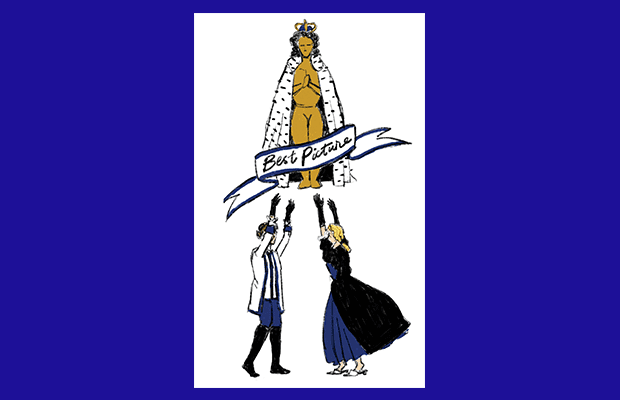If you’re like me and consume a shameful amount of entertainment news, you would have recently encountered a flood of articles headlined “10 Oscars moments that made us scream YASS QUEEN!!!!”. Much of the post-Oscars discourse is that the award ceremony was a watershed moment for LGBT+ representation in mainstream film. Indeed, a total of eight awards went to films with queer themes. But beneath the velvet tuxedo gowns, Hollywood still has a problem of queer erasure, and the big winners of the night reflect that practice.
Cishet actors have been nominated for playing queer characters since the 1940s, but this year was a curious digression — three out of the four major acting awards were won by straight actors in queer roles. This raises a touchy question: who should these parts be given to? While it certainly rings true that queerness is an intrinsic facet of identity that only a queer person can truly understand, a person’s identity should not have a place in the casting process if we ever want to see a truly impartial film industry. The casting decision should come down to who the best actor is for that role, else we would regress towards tokenism. We should instead focus on the issue of authenticity: the way that characters are written, developed, performed and presented.
Bohemian Rhapsody, the biopic of Queen’s eccentric frontman Freddie Mercury for which Rami Malek won Best Actor, was a poor and damaging representation of queerness. It reduced Mercury’s sexual fluidity and psychosexual imagination to a duality of good versus evil; same-sex attraction entices him into a decrepit life of promiscuity and drug abuse. Because the people making these films live in a different skin, queerness is often manipulated to fit stereotypes and moralising narratives, rather than being granted the richness it demands. When you consider that Bohemian Rhapsody’s director Bryan Singer is a bisexual man who called his sexual assault accusers homophobic, his treatment of same-sex desire as perverse unfortunately begins to make sense. To ensure these stories are authentic, filmmakers must include not queer people per se, but people who have the clearest insight into their character’s lives — those with similar identities, lived experiences, as well as their family and friends — throughout the entire process.
Even when queer characters are aptly written, erasure still occurs in the way that films are presented and received. Often, popular films with integral queer themes aren’t promoted as LGBT+ cinema, nor are they accepted as belonging to that genre. Green Book, which took home Best Picture, depicts a gay, black classical pianist embarking on a concert tour through a Jim Crow-era South. The Favourite, for which Olivia Colman won Best Actress, was a nuanced depiction of a monarch entangled in a love triangle with her female advisers. However, the queer aspects of these films were largely overlooked, often being overshadowed by isolated dissections of race and gender. Many critics described The Favourite as a salacious and sharp look at power dynamics between women, as opposed to queer women. We as an audience need to recognise and celebrate the fact that these stories are exploring intersectional identities; that not all black men or women on screen are straight by default; and break away from one-dimensional frames that the community has long sought to do.
Winning an Oscar is a career milestone, but a poor yardstick for assessing representation. There is still much to do in Hollywood, and award shows are but one small aspect in our wider battle for acceptance. The stories we tell through our artforms have an increasingly profound impact on the way we perceive queer identities and experiences, so it’s important that we get these stories right.





